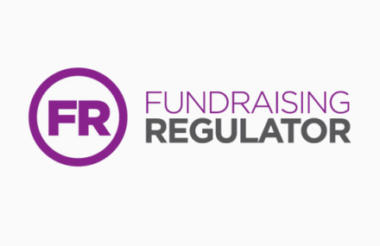Two charities breached the fundraising code by ignoring donors’ requests not to be contacted, the Fundraising Regulator has found.
The Church Urban Fund called and sent mail to a donor suffering from dementia, despite requests from the family through the Fundraising Preference Service (FPS) to stop doing so.
Meanwhile, Leukaemia & Myeloma Research UK's agency delivered a charity bag to a “banned” address.
The regulator published three summaries of investigations yesterday, looking at complaints that organisations were unable to solve themselves. The third investigation concerned WaterAid, but the charity was not found to be in breach of the code.
The Fundraising Regulator publishes summaries of its investigations every quarter.
Church Urban Fund called and mailed a vulnerable donor despite FPS request
The regulator found that the Church Urban Fund breached the fundraising code after it kept sending mail to a donor who suffered from dementia.
The donor’s family originally used FPS to request that the charity stopped contacting them in December 2017, and followed up in June and October 2019.
However, the charity kept sending mail to the donor, and in December 2019 called them to thank them for a previous donation. During the phone call, the donor also agreed to being added to a further mailing list.
The regulator found that the charity breached the code because it did not act on the FPS request. It also expressed “concerns” about the way the charity dealt with a vulnerable member of the public.
“We saw no evidence that staff members would have been equipped with the skills to recognise if they were speaking to potentially vulnerable people,” the investigation says. However, it was not able to reach a final decision on this because the phone call was not recorded.
The regulator asked the charity to review its process for dealing with FPS requests, and its staff training on accurately recording the outcome of phone conversations and on dealing with vulnerable people.
A spokesperson for the Church Urban Fund said: “Following discussions with the Fundraising Regulator, we have rapidly complied will all their recommendations and amended our processes.
“All our staff have attended a training course in recognising and responding to members of the public who are potentially vulnerable. We have new engagement, identifying vulnerable people, consent, safeguarding and database policies and a training resource.”
Leukaemia & Myeloma Research UK failed to monitor its agency
The Fundraising Regulator investigated Leukaemia & Myeloma Research UK and its agency Fundraising Support Ltd regarding the delivery of a charity bag to a member of the public who had asked to stop receiving them.
The agency had considered the subsequent complaint about this to be “not valid”, saying that the property lacked a clear house number and questioning how its staff could know that the resident did not want to receive bags. The charity reportedly accepted this response.
The regulator found that both the agency and the charity had breached the fundraising code. The agency because it “engaged in fundraising that was unreasonably intrusive”, and the charity because it failed to monitor the agency’s work.
A spokesperson for Leukaemia & Myeloma Research UK said: “Our charity conducted an internal investigation regarding this case. As a result, we could not place the blame solely on our agent, and specifically the distributor, as it was confirmed that the house did not have a number or a 'no junk mail' sign, as evidenced on the photographs.
“Following this investigation, we had implemented measures which help prevent cases like this from happening in the future.
“We have considered the recommendations outlined by Fundraising Regulator and have implemented additional measures of monitoring our agent.”
WaterAid investigated over direct mail
WaterAid was investigated over a complaint about direct mail. A member of the public asked the charity to stop seeking donations in 2016, but started receiving fundraising requests again in 2019.
After they complained to the charity in September 2019, they received a final piece of mail the following month.
The regulator found that this did not breach the code, as the last mail was already in production when the request was made, and less than the prescribed 28 days had gone by.
It also could not reach a conclusion on the member of the public’s requests to stop receiving communication from the charity in 2016, because it “did not have enough information about them”.











